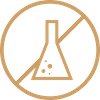Vitamin B3
Vitamin B3 (i.e., niacin) is a precursor of the endogenous molecule nicotinamide adenine dinucleotide (NAD+). The redox pair NAD+ and its reduced form NADH form an essential component of the respiratory chain in the mitochondria. NAD+ is also involved as a substrate and coenzyme in over 500 reactions in cell metabolism and contributes to the control of fundamental cellular processes. Vitamin B3 is therefore essential for the body's energy supply and is present in various forms in almost all body tissues.
Nicotinamide Riboside (NR): an effective precursor of NAD+
Within the vitamin B3 metabolism, niacin must be converted to NAD+ in several steps. Nicotinamide riboside is one of the most direct precursors of active NAD+ in this metabolic pathway and - unlike other forms of vitamin B3 - therefore avoids complex conversion steps to produce the coenzyme.
Nicotinamide / niacinamide: directly available vitamin B3 without "niacin flush"
In high doses, the intake of niacin leads to so-called "niacin flush" with suddenly dilated blood vessels and tingling and reddening of the skin. Nicotinamide (i.e., niacinamide) is a form of vitamin B3 which, even in the highest doses, only leads to this sensation in a small number of people with impaired B3 metabolism.
Health Benefits According to the European Food Safety Authority (EFSA)
Vitamin B3 contributes to:
- Normal energy metabolism
- Normal functioning of the nervous system
- Normal mental function
- Maintaining normal mucous membranes
- Maintaining normal skin
- Reducing tiredness and fatigue





























